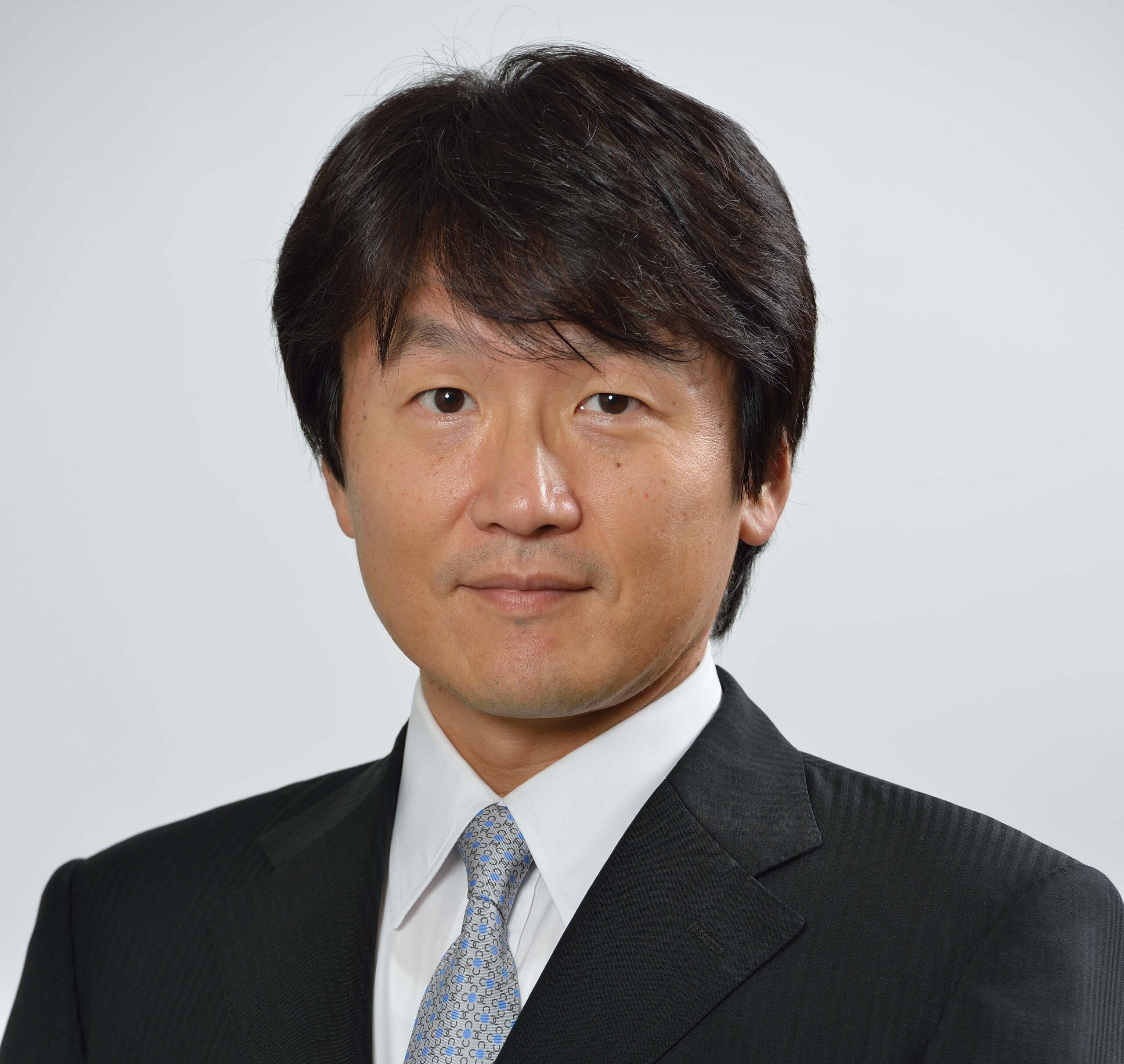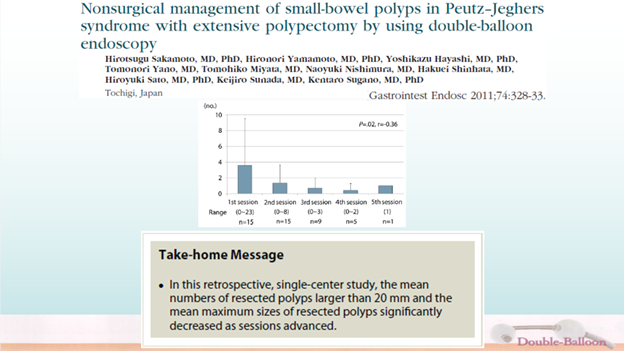For patients with small bowel polyps, endoscopic management can prevent complications and the need for surgery, according to Hironori Yamamoto, MD, professor and chairman of the Department of Medicine at Jichi Medical University in Japan, who presents on the topic at Digestive Disease Week® (DDW) 2023.
“Resecting small bowel polyps used to require surgery,” Dr. Yamamoto explained. “Accessing the small intestine endoscopically is challenging. However, endoscopic approaches, such as double-balloon endoscopy, are now available to prevent complications.”
Small bowel polyps are rare and don’t require screening in the absence of symptoms. However, some conditions, such as Peutz-Jeghers syndrome and familial adenomatous polyps, lead to multiple polyps along the gastrointestinal (GI) tract, including the small intestine, and require continuous monitoring to prevent complications. If left untreated, small bowel polyps can lead to GI bleeding and subsequent anemia, malignant tumors and intussusception — a life-threatening phenomenon in which a portion of the intestine folds into itself like a telescope, leading to bowel obstruction and necrosis.
Most guidelines recommend that surveillance for GI polyps in patients with Peutz-Jeghers syndrome start early — as young as age 8 — with repeated monitoring based on previous findings. Since complications often require surgery, preventing complications via nonsurgical approaches should be a priority.
Dr. Yamamoto was instrumental in developing double-balloon endoscopy, a technique that increased the intubation depth into the small intestine while maintaining good maneuverability and control. Compared to other deep enteroscopy methods, such as spiral endoscopy, double-balloon endoscopy has a smaller diameter and is gentler and safer for patients.
He outlines five recommendations for managing patients with small bowel polyps:
- Gastroenterologists should be aware of deep enteroscopy methods to manage small bowel polyps.
- Patients with Peutz-Jeghers syndrome should undergo endoscopic surveillance for and resection of small bowel polyps.
- Small bowl polyps should be treated endoscopically before they develop complications, such as intussusception, that require surgical resection.
- Double-balloon endoscopy is recommended for polyps with risk factors for complications, including those that are bleeding, larger than 1.5 cm, have a significant risk of intussusception or are at high risk of transformation.
- Preventing surgery should be a high priority for patients with small bowel polyps. Once patients undergo a laparotomy, endoscopic approaches become much more difficult.
“I don’t want to send a patient with Peutz-Jeghers syndrome to surgery at all,” said Dr. Yamamoto. “Even with complications like intussusception, if the situation is not urgent, I recommend endoscopic reduction of intussusception and treatment. Once a patient undergoes surgical resection, future endoscopic approaches become very challenging, and sometimes impossible.”
Dr. Yamamoto’s oral presentation, “Small bowel polyps: when to find and how to resect” on Sunday, May 7, at 2:17 p.m. CDT, is part of the session “ASGE Small Bowel Big Problems.”
Access to session recordings
If you’re attending DDW, your registration includes access to a recording of this session, available to watch at your convenience until May 17, 2024. Session captures will be released 24 hours after the session ends. Non-attendees can also purchase access to DDW On Demand to watch session recordings after DDW ends.





